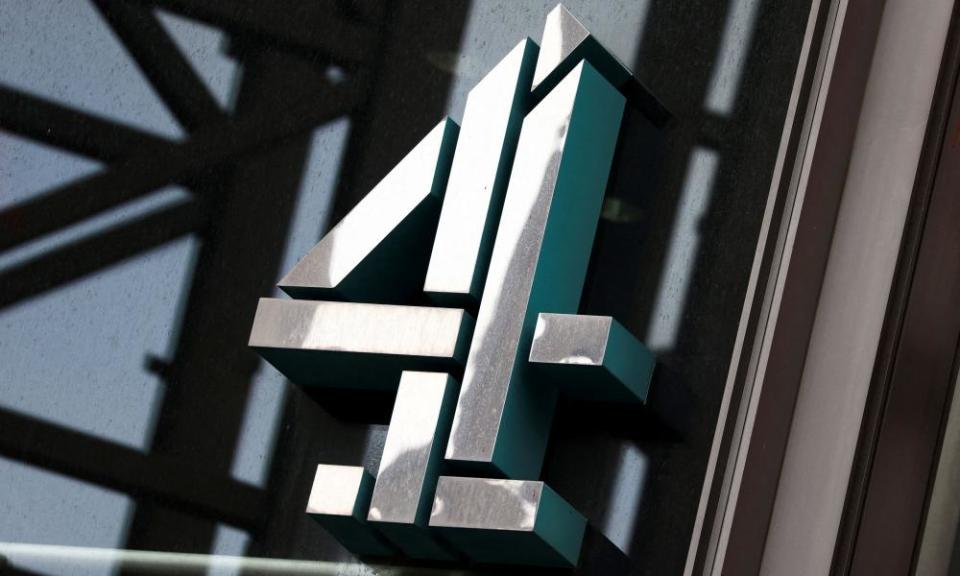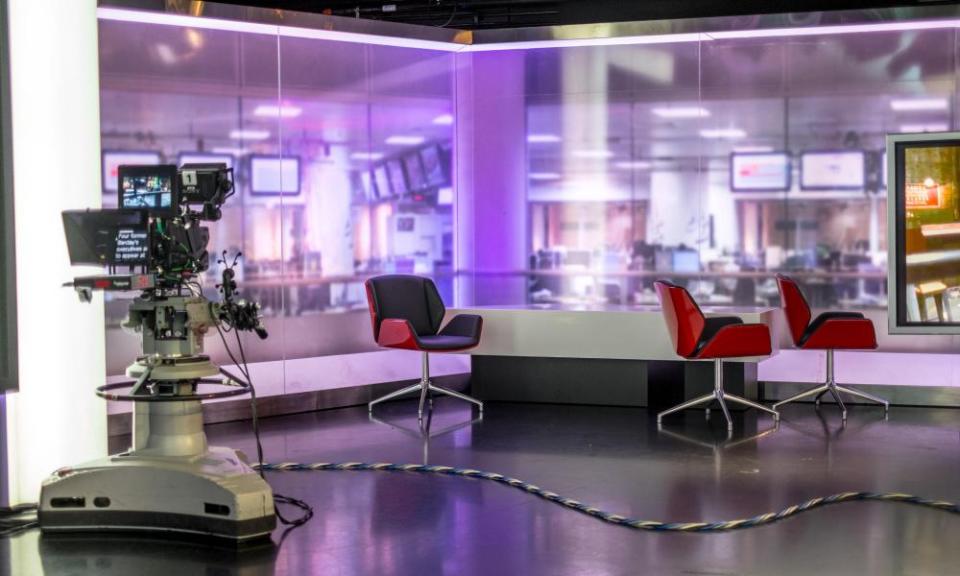Channel 4 working on new ITN deal as bosses fight privatisation plan

Channel 4 is preparing to sign a deal to keep its news programme on air for the next five years, meaning any new private sector owner could be locked into producing a show that has repeatedly angered Conservative ministers.
It comes as the broadcaster’s management team engage in an uneasy dance over its future, with the government increasingly annoyed that they are openly fighting attempts at privatisation.
“Name me one other company where the executives would be able to go out and actively oppose their shareholders,” said one government source, who suggested it would not be tolerated for much longer.
According to individuals involved in the process, Channel 4 is in a state of “phoney war” before publication of the government’s detailed plans on privatisation, expected in July. Parliament will then be asked to approve the proposals as part of a wider piece of media legislation in the autumn, with a sale potentially taking place in early 2023.
Among the potential bidders is the actor Idris Elba, who sources said was in early discussions with the TV production company Miroma. Both parties stressed their affection for the channel and a keenness for it to stay British.
The fate of Channel 4 is increasingly linked to Boris Johnson’s ability to remain as prime minister – and the ability of external lobby groups, TV industry representatives and actors to win the support of backbench Conservative MPs.
Channel 4 certainly has friends. Fighting privatisation of the broadcaster – which has a specific remit to create distinctive content and must reinvest all of its profits into new programmes – has united almost the entire television and arts industry.
Everyone from David Attenborough to the owners of small production companies in Yorkshire have objected – while everything from the channel’s investment in comedy programmes, its coverage of the Paralympics, and even the future of the long-running soap Hollyoaks has been raised as a potential casualty of privatisation.
Ministers maintain that Channel 4 needs substantial private investment to survive in a streaming age. Armando Iannucci, the creator of The Thick Of It, summed up the opposition to this view when he wrote that the channel was “a financial and creative success, and still costs the taxpayer absolutely nothing”. He asked: “Why, time and time again, does the government want to make our TV worse?”
The one topic that interests MPs the most is the future of Channel 4 News. The culture secretary, Nadine Dorries, has previously said the programme does not do the broadcaster “any favours” with the tone of its coverage and suggested it has an anti-Conservative bias. Despite this, she has denied that her attempt to sell the channel is motivated by a desire to silence criticism of the government.

Which is just as well, because industry sources say Channel 4 executives are quietly working on a new deal with ITN to continue making the current iteration of the award-winning news programme until the late 2020s. Although it could be possible for a new owner to unpick the deal, it would be expensive, with the deal securing the programme’s future in the medium term.
Channel 4’s programme director, Ian Katz, has warned that a new owner would be looking to reduce the budget available for investigations and foreign reporting. He told the Welsh Media Summit on Thursday last week that “whether it’s a few years down the line, or in subtle and corrosive ways sooner than that, it is very likely that a privatised Channel 4 would deliver a different kind of news programme to the one we air now”.
Internally, the channel’s staff are split into three groups: one that wants to fight the government and defeat privatisation, another that reluctantly accepts privatisation and wants to start planning for the future, and a third that wants to try to salvage a middle-ground compromise on partial public ownership.
The expectation among staff is that the current management team – led by the chief executive, Alex Mahon, and Katz – would be likely to leave if a new owner takes over. But for now the executives remain in their positions, overseeing a delicate and quiet influence campaign designed to pick off individual Conservative backbench MP. One person dealing with Channel 4 said: “They will provide the facts but they have this fine line to tread.”
A key part of Channel 4’s strategy is offering support and resources to politicians who want to opposition privatisation. After Dorries made a series of disputed claims about Channel 4 in parliament, a lengthy rebuttal was issued to the media and politicians.
This is causing growing anger in government that Channel 4 management team are essentially fighting their owner by opposing privatisation, and trying to make it an unattractive prospect for potential purchasers. One particular sore point was Dorries’s suggestion in parliament – still as yet unsubstantiated – that a Channel 4 reality show she appeared on in the 2000s used paid actors to portray real people. Her claim caused panic at Channel 4 and the producer Love Productions as they raced to investigate.
Multiple individuals and politicians involved in the debate over Channel 4’s future say it comes down to two issues: whether Johnson survives, and whether the relative apathy of Conservative MPs towards privatisation is either a help or a hindrance.
If the prime minister is deposed before a sale is completed, potential Tory leadership candidates including Jeremy Hunt and Tom Tugendhat have already signalled they oppose privatisation. This month the former Treasury minister Jesse Norman called for Johnson to step down and called the sale of the broadcaster an “unnecessary and provocative attempt to address a political non-issue during a time of crisis”.
Binning the proposal could be a quick way of signalling a shift in government direction – but it would require unpicking the entire media white paper.
Even if the government does manage to rush through the legislation this year, it would do well to have the sale of Channel 4 finished within a year – by which time Johnson may have been replaced.

Apathy is more problematic. With a government majority of 77, at least 39 Conservative MPs would need to switch sides in order to defeat the privatisation process. Although there are already dozens of Tory MPs opposing the selloff proposals, few say it is a top issue among their constituents, who are much more interested in criticism of the BBC and the licence fee.
The DUP MP Ian Paisley Jr told the House of Commons that during the last 12 years he had “not received one complaint about Channel 4”, compared with “thousands upon thousands of them about the BBC”. Many MPs publicly and privately agree with this assessment and would prefer to focus on criticising other parts of the media.
The concern at Channel 4 is that while wavering Conservative MPs may think privatisation is a pointless use of parliamentary time, if few of their constituents care either way then they could ask if they really want to sacrifice their career by voting against the government on the issue.
Even Tory MPs who may support privatisation of Channel 4 in principle remain baffled as to why the government has chosen this moment to push ahead with the plan. At the end of March senior figures in the culture department were confident that the government would drop the privatisation proposal – a pet policy of the former media minister John Whittingdale – and prioritise other legislation before the next general election.
But a week later Channel 4’s executives were unexpectedly told that the sale would be going ahead. Exactly what happened to prompt this change of heart is unclear. Multiple sources suggest Andrew Griffith MP, the former Sky TV executive who runs the Downing Street policy unit and is a close ally of the prime minister, played a key role.
Until a decision is made, Mahon is continuing to put forward alternative proposals, such as moving more staff and budget out of London. She told TimesRadio recently that a for-profit owner could not take the same risks.
“Derry Girls wouldn’t be on air, It’s A Sin wouldn’t have been on air, the Paralympics wouldn’t have been on air,” she said. “They involve massive creative risk in the first place. When you’re working with new talent, young talent, that’s risky … Netflix and Amazon don’t do that, because it’s not profitable.”
As a result, the ultimate battle could be ensuring parliament makes the privatised channel less attractive for a potential buyer. Last week Katz urged MPs and peers to scrutinise the legislation that would privatise Channel 4 and enshrine certain programme requirements in law.
He said: “If the government’s proposed privatisation of Channel 4 goes ahead without careful protection of its essence, little might seem different the day after the channel is sold. But little by little, a precious part of our natural cultural capital could be lost. Like the proverbial frog in boiling water, we may not understand the cost until it’s too late.”

 Yahoo Movies
Yahoo Movies 